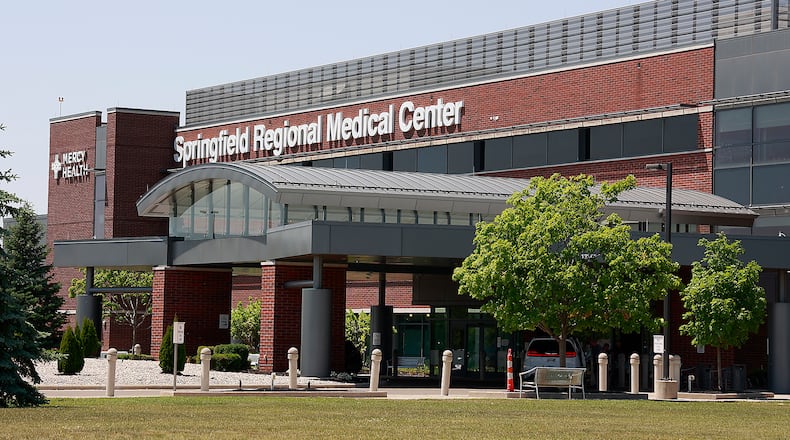According to the release, in studies comparing outcomes of more than 20,000 patients, researchers found that TCAR is safer than conventional stent placements that use a femoral artery puncture, resulting in fewer neurologic complications.
“We are excited to introduce this new procedure at Mercy Health - Springfield. TCAR provides a vital option for patients with critical carotid disease, and we are proud to offer it to all patients, regardless of their surgical risk,” said Dr Michael P. Siegenthaler, Mercy Health cardiovascular surgeon. “... We believe TCAR represents a significant advancement in the treatment of carotid disease, and we look forward to serving our community by offering this innovative procedure.”
Before TCAR, treatment for severe carotid artery disease at Mercy Health typically was a carotid endartectomy, which removed the plaque that narrows the carotid artery in order to restore normal blood flow to the brain, according to the release. This procedure is an open surgery and although TCAR is just as safe, it requires a much smaller incision and a quicker recovery time with a lower risk of postoperative complications like bleeding, infection, heart attack and cranial nerve injuries.
Every 40 seconds, someone in the U.S. has a stroke, according to the Centers for Disease Control and Prevention. Every three minutes and 14 seconds, someone dies of a stroke.
Stroke is the second-leading cause of death in Clark County and the third in Champaign County, Dr. Jody Short, an interventional neurologist at the hospital, said in May.
According to the American Stroke Association, a stroke can cause symptoms including one-sided paralysis, speech or language problems, vision impairment, changes in behavior and memory loss. An untreated stroke can result in more long-term disabilities or death.
The hospital recently opened an interventional neurology suite with a minimally invasive technology that is used to diagnose and treat strokes and other neurological conditions known as biplane angiography. This ended the requirement to transfer stroke patients to Dayton or Columbus.
The hospital was also certified for primary stroke care in December.
Anyone who undergoes a TCAR procedure must take antiplatelet medications in order to properly heal the stented artery, according to the release. Those seeking additional information can call 937-523-9885.
About the Author
